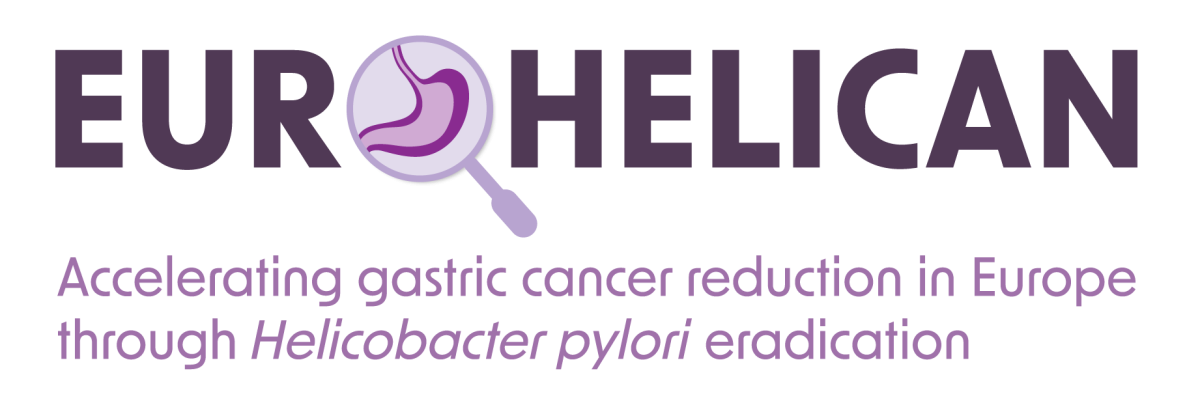EUROHELICAN - Accelerating gastric cancer reduction in Europe through Helicobacter pylori eradication
Gastric cancer poses a major public health challenge worldwide. In Europe, there is a significant geographical variation in Helicobacter pylori (H. pylori) related gastric cancer incidence, with the regions of Central and Eastern Europe having the highest burden. This situation warrants urgent preventative action.
A population-based H. pylori test-and-treat approach has been proposed as a preventative measure. However, uncertainty about the feasibility of this strategy at a population level, potential adverse effects of mass antibiotic treatment, and a lack of guidance on implementation and evaluation have hindered progress.
EUROHELICAN aims to address these challenges by:
- implementing a population-based H. pylori test-and-treat programme in young adults in Slovenia to assess its processes, feasibility, and acceptability;
- evaluating the long-term effects of the strategy in middle-aged Latvians participating in the GISTAR study;
- developing guidelines for implementing the strategy and recommendations for impact evaluation via an expert working group meeting facilitated by IARC/WHO.
The results from EUROHELICAN will help policy makers incorporate the H. pylori test-and-treat strategy into their healthcare priorities for gastric cancer prevention, balancing effectiveness, feasibility and acceptability against potential adverse effects.
- Project duration
- 1 Nov 2022 - 30 Apr 2025
- Project locations
- FranceLatviaSlovenia
- Overall budget
- €1 626 595
- EU contribution
- €1 301 27680% of the overall budget
- Project website
- Eurohelican site
- EU4health - Projects
- Prevention
Results
EUROHELICAN aims to achieve the following:
- Feasibility and effectiveness assessment: The project will implement a population-based H. pylori test-and-treat strategy programme in Slovenia, particularly targeting young adults. The goal is to assess the feasibility, acceptability, and effectiveness of this strategy at a population level, marking the first time such an approach has been taken in Europe.
- Evaluation of long-term effects: The project will evaluate the long-term effects of the H. pylori test-and-treat strategy on the middle-aged population in Latvia, using data from the GISTAR study. This will provide valuable insights into the potential benefits and adverse effects of the strategy over an extended period.
- External evaluation of studies: The project will engage the University Hospital Nantes in carrying out an external evaluation of the studies conducted in Slovenia and Latvia. This will help ensure the objectivity and reliability of the findings.
- Development of implementation guidelines: via IARC/WHO, an expert working group will develop a set of guidelines for the implementation of the H. pylori test-and-treat strategy at the population level. They will also provide recommendations for the evaluation of the strategy's impact.
These outcomes aim to accelerate the reduction of gastric cancer incidence in Europe, providing vital guidance for policy-makers to incorporate the H. pylori test-and-treat strategy into their healthcare priorities.
Stakeholders
Coordinators
National Institute for Public Health (NIJZ)
- Address
- Trubarjeva cesta 2, 1000, Ljubljana, Slovenia
- Website
- https://nijz.si/


